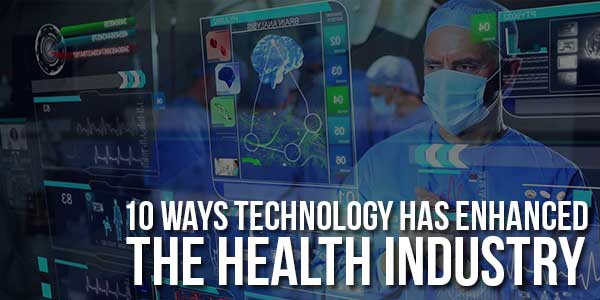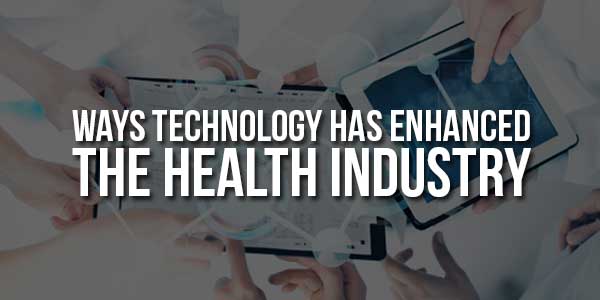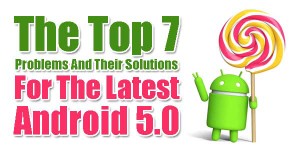
The health industry has seen a lot of changes in recent years. This is due to the rapid growth and development of technology, which has created major improvements in nearly every aspect of medicine. In this blog post, we will discuss ten ways these technologies have changed the lives of individuals associated with the medical field, from doctors to patients. The following list does not include state-of-the-art equipment and procedures that are currently used or under development (such as robotic surgeons and gene therapies), but rather discusses how existing technologies enhanced the industry.
Table of Contents
1.) Electronic Health Records:
One main benefit for medical professionals was the creation and implementation of electronic healthcare records (EHRs). Although many had been using digital records since at, EHRs weren’t mandated by the government until around 2009. This system simplified the process of keeping track of patients’ medical records, as well as providing electronic access to said records to healthcare professionals.
2.) Telemedicine:
Telemedicine is a relatively new advancement in health care that has recently become more popular due to its convenience and cost-effectiveness. It allows doctors to conduct virtual “office visits” with their patients through video calls or secure email communications. This provides easier access for rural residents who may not have immediate access to speciality medical treatments, saving them time and money which would otherwise be spent travelling long distances just for an appointment.
3.) Electronic Medical Records (EMR):
The immense benefits of having an EMR system in a hospital or private practice became widely apparent once they began to be used. An EMR is a computer software program that is designed to store and organize medical records while providing electronic access for doctors and patients alike. This allows for better communication between healthcare professionals and the ability to review patient information more quickly.
4.) Wireless Health Monitoring:
Because of their prevalence in society, modern-day smartphones have been an incredibly useful tool when it comes to improving health care. For example, smartwatches containing heart rate monitors can assist physicians in determining whether or not certain medications are sufficiently controlling their patient’s blood pressure; this eliminates the need for unnecessary (and expensive) office visits with each drop in blood pressure. Furthermore, some apps contain portable ultrasounds which can be used to check the health of unborn babies, saving expectant mothers from making multiple trips to their doctor’s office just for a quick checkup.
5.) Electronic Medical Records (EMR) and the Cloud:
The most significant benefit that has been brought on by utilizing cloud computing in healthcare is its ability to increase data security and privacy. This helps mitigate the problem of important patient information being leaked or hacked into, as it no longer needs to physically reside on computer systems within hospitals and doctors’ offices. Rather, this data is now stored online with firewalls that prevent unauthorized access attempts. This also saves time and money due to not having to spend so much manpower updating software and training employees on how to use them without compromising patient information.

6.) Home Automation and the Internet of Things (IoT):
The smart home revolution is a fairly new development that has enabled homes to become smarter, safer, more comfortable, and even more “convenient”. Not only have these technological advancements resulted in nice-to-have luxuries such as voice-activated light switches or security systems that can be controlled remotely from a smartphone, but they also provide invaluable resources to individuals who may not be able to take care of themselves without assistance. For example, elderly people with limited mobility can use IoT devices simply by speaking out loud commands regarding what they need help with. Furthermore, recent developments in home automation are beginning to converge with advances in healthcare technology which will enable doctors to take care of patients remotely and even monitor specific vital signs.
7.) 3D Printing and Bioprinting:
Bioprinting is the process of using a three-dimensional (3D) printer to produce biological cells, tissues, or organs as an alternative method to traditional biological engineering. This technology has been utilized in many different industries such as food production, construction, and now healthcare; it allows for customizable implants which more closely resemble the properties of natural bone structures. It also eliminates the need for donor transplants if an appropriate match can’t be found due to being able to create new bones on-demand with precision down to the level of individual cells.
8.) Wearable Technology:
As mentioned earlier in this article, wearables have some significant benefits to the medical community. However, there are also other types of wearable technology which hold promise for healthcare providers. For example, virtual reality was successfully used to treat arachnophobia in a patient who had trouble with exposure therapy. Furthermore, augmented reality has been utilized by doctors to allow themselves or their patients to visualize 3D structures in their line of sight for better diagnosis and treatment planning.
9.) Social Media:
Social media is typically viewed as nothing more than entertainment, but it has actually become one of the most useful tools at our disposal when it comes to healthcare. Sites such as Facebook have enabled users from all over the world to connect through updates regarding what they’re currently doing while providing important information about certain symptoms which may lead to life and death situations. In the medical field, social media is a critical resource for marketing campaigns and is also a valuable tool for doctors to interact with patients who want reassurance regarding their concerns or questions.
10.) Policy Regulations:
To make sure that technological advancements in healthcare are actually utilized safely and responsibly, the US government has had an impact on how technology is used within healthcare organizations. For example, electronic health records (EHR) were mandated by HIPAA (Health Insurance Portability and Accountability Act), requiring all medical providers to make use of standardized forms of patient data storage. This resulted in the creation of the Data Privacy and Security Rules which protects sensitive information from falling into the wrong hands Furthermore, FedRAMP (Federal Ruling from the US Government Accountability Office) has been implemented to make sure that all data generated by government agencies is secured. In addition, there are also various pieces of legislation that have been passed to protect against unnecessary health care costs and medical bill fraud.
At the end of the day, technological advancement will continue regardless of how we perceive it or use it in our daily lives. As a result, we need to be responsible when utilizing these advancements so that they can truly benefit individuals who don’t have access to specialized areas such as healthcare.
Conclusion:
The ten points from the above article speak about technology having benefits for many aspects of healthcare including home automation devices and wearable technology which help doctors provide better treatment in terms of patient monitoring, in addition to it also improving healthcare financially in many ways. It brings in new ideas every day and the present time is all about having great standards for diagnosing diseases using technology possibilities.
The point which speaks about policy regulations explains how concerned the government is about healthcare data security and protecting consumers from unnecessary expenses. The process of keeping a record of all activities is very important for any organization and often results in what we call EHR or Electronic Health Records.

 About the Author:
About the Author:












That was a nice article, keep posting such articles to keep us updated.
Welcome here and thanks for reading our article and sharing your view. This will be very helpful to us to let us motivate to provide you with more awesome and valuable content from a different mind. Thanks again.